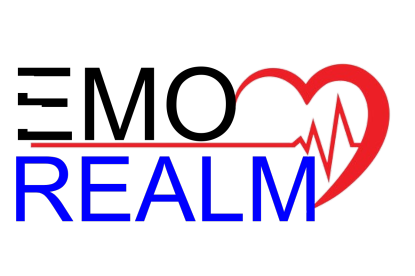Introduction
Emotional smarts, sometimes called EQ, mean knowing what you feel, getting why, then handling those feelings – also noticing them in folks nearby. This skill shapes your reaction to pressure, changes how you bond with people, even guides daily picks. Being tuned into emotions helps build tighter connections, leads to wiser moves, boosts inner balance.
Life’s moving quick these days – on top of that, social stuff feels heavier. So getting a grip on emotional smarts isn’t just helpful – it kinda makes a difference. Let’s look close at what EQ really means, dig into why it counts, also see how building it up shifts things – in your day-to-day world or even at work.
What Is Emotional Intelligence?
Feeling smart isn’t just about knowing what you’re sensing – it’s how you handle reactions, pick up on signals from others, also act in ways that help rather than hurt. This goes way beyond “knowing yourself” – it helps you talk so people feel heard, work through tough moments, even grow closer over time.
Those who understand emotions tend to solve issues easier, stay steady under pressure, also notice how feelings shape choices. Building this skill often leads to stronger belief in oneself, clearer conversations, besides deeper connections with others.
The Importance of Emotional Intelligence
Emotional smarts touch most parts of daily living. Inside the house, they create stronger bonds, caring attitudes, together with clearer talks. On the job, they boost how you lead others, cooperate in groups, or handle tough choices. Having good EQ brings steadier moods along with tougher inner strength when things get rough.
People who understand emotions well usually earn trust, also boost teamwork in groups. When it comes to friendships or love, being emotionally aware helps you listen better while reducing pointless arguments. Basically, EQ gives folks the tools to handle conversations with care – building real bonds and making life feel more fulfilling.
History of Emotional Intelligence
The beginnings of emotional smarts go way back to the 1900s. Back then, thinkers like Edward Thorndike started talking about “knowing how people tick,” whereas Darwin had already pointed out that showing feelings could help creatures survive.
The idea of EQ started coming together back in 1990 – Peter Salovey and John Mayer laid it out clearly, calling it a mix of emotional abilities. By 1995, Daniel Goleman brought it into the spotlight through his book Emotional Intelligence, shifting how people saw feelings at work and elsewhere.
Right now, knowing how to handle emotions matters a lot – not just in therapy or classrooms, but also in companies and when training leaders.
The Components of Emotional Intelligence
Emotional Intelligence is typically broken down into five key areas:
| Component | Description |
| Self-Awareness | Knowing your feelings, what’s behind them, and how they shape your actions. |
| Self-Regulation | Handling emotions without losing balance, staying cool when things get tense. |
| Motivation | Having a drive inside to develop, do better, and keep going despite setbacks. |
| Social Awareness | Noticing how someone else feels, what they need, and seeing their perspective. |
| Relationship Management | Getting along with people by talking clearly, working through disagreements, and building trust. |
Impacts of Emotional Intelligence
Personal Relationships
People with high EQ often enjoy richer relationships because they show care, talk clearly, or work through disagreements well. Those who get emotions – others’ or their own – tend to react in ways that build real trust and tighter connections over time.
Professional Success
Being aware of emotions helps you get ahead at work. This skill leads to improved collaboration because it supports clearer conversations while boosting leadership ability. People who understand their feelings deal with pressure better, since they form solid connections on the job and lift team morale along the way.
Mental and Physical Health
EQ helps you feel better mentally because it lowers stress while boosting how you handle tough situations. It builds up your ability to bounce back when life gets hard instead of falling apart. Those who manage their emotions well tend to have less body aches tied to tension plus stay consistent with good daily routines. Knowing what you feel cuts down chances of hitting total exhaustion or dealing with constant worry and sadness.
Developing Emotional Intelligence
Social Awareness
Being aware socially means you can tell how someone feels, what they need, or how they see things. Because of this skill, people understand others better, pick up on body language, yet handle conversations with more care.
Relationship Management
Getting along with people means knowing how others feel so you can connect better. That’s where clear talking, working through disagreements, offering helpful input, or building real trust comes into play. Good at this? It matters just as much at home as it does at work.
Communication Skills
Good communication – how you talk, listen, or show feelings – is key to emotional smarts. It’s about paying real attention when someone speaks, sharing ideas without confusion, noticing facial cues or gestures, also staying honest but kind in talks. People who do this well tend to form stronger bonds while avoiding mix-ups.
Applications of Emotional Intelligence in Daily Life
| Application | EQ Skill in Action |
| Conflict Resolution | Keeping cool when things heat up, paying attention even if views don’t match, yet still moving toward balanced fixes. |
| Decision-Making | Pausing before reacting, so actions stay calm and fair instead of rushed or extreme. |
| Leadership | Showing understanding, tackling issues calmly, which builds worth and drive in others. |
Conclusion
Feeling aware shapes the way we connect, handle tasks, or deal with tough moments. Building EQ helps you express yourself clearly, form deeper bonds, while staying in touch with who you are. When everything shifts fast and everyone’s linked nonstop, tuning into emotions gives you strength to adapt, move forward, grow from within.
As we keep growing in understanding ourselves, caring about others’ feelings, or handling emotions better, we set up stronger connections and richer moments across all parts of daily living.
Summary of Key Points
-
Feeling smart means knowing yourself, handling your emotions, staying driven, understanding others, also getting along well.
-
EQ helps you connect better by understanding others, while also improving how you talk to them.
-
On the job, this boosts how people lead while also strengthening group effort because choices get made smarter.
-
Feeling aware helps your mind stay strong, while also boosting how you feel day to day.
-
Skills like paying close attention when others talk builds slowly with practice. Dealing well with disagreements grows through real-life experience instead of theory. Staying calm under pressure improves bit by bit as habits change.
Importance of Emotional Intelligence in the Modern World
In a time full of online chats, mixed cultures, and never-ending shifts, knowing how you feel matters. It helps folks work together even when they’re different, adjust to strange settings, or keep real relationships going. Bosses, teachers, and decision-makers care more about this skill now since it feeds creativity, kindness, and toughness – stuff we need in our connected world.
Recommendations for Further Learning
-
Check out reads on emotional smarts – maybe a book, some posts, or even online classes.
-
Join a workshop – or try one-on-one coaching – focused on understanding emotions.
-
Try mindfulness or write things down – either way helps you notice yourself better.
-
Check in with people you trust – get their real take.
-
Try EQ tests now so you can see how far you’ve come while spotting spots that need work.
FAQs
What are signs of low emotional intelligence?
Those who score low on emotional awareness often don’t notice what they’re feeling, which can make understanding others tough. Instead of pausing to think, some might just go ahead without considering consequences. When pressure builds up, reactions tend to flare fast – sometimes out of proportion. Reading signals from people around them? That part doesn’t always click right. Because of this mix, keeping friendships or bonds steady becomes a real challenge.
Is it possible to get better at understanding emotions?
Right – emotional smarts can definitely grow. By thinking things through, trying out new approaches, getting honest input, or working on specific abilities, people are able to boost EQ bit by bit.
What’s one way to check how well you understand your feelings?
You might check your EQ by looking inward, using official tests, listening to what people say about you, or just noticing how you act when feelings come up every day.
I can help you find a highly-rated book or an online course on Emotional Intelligence if you’re ready to start building those skills.




